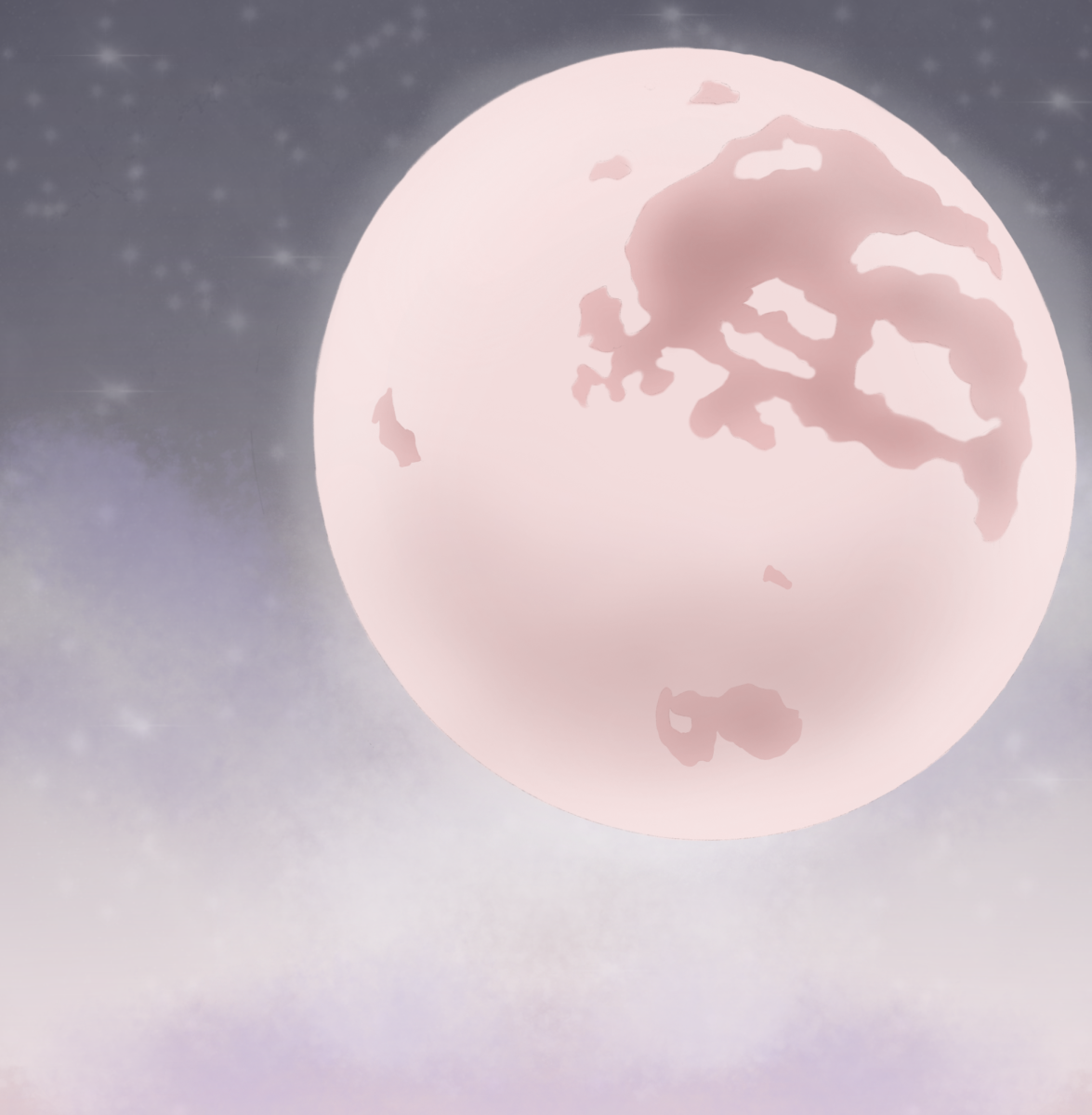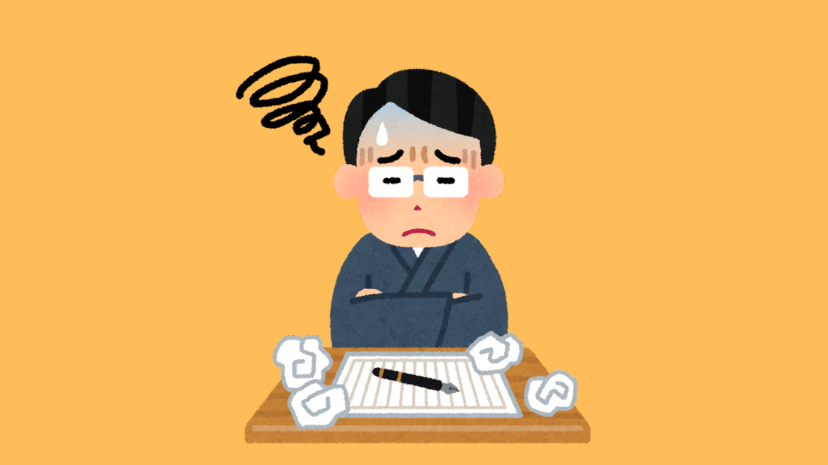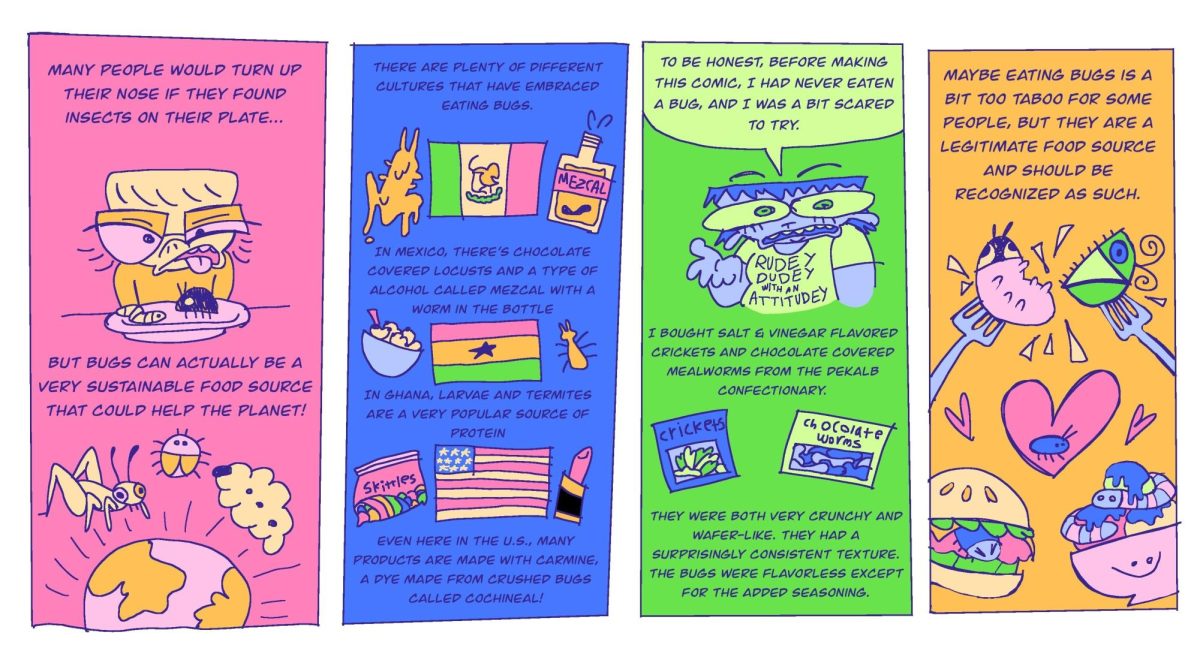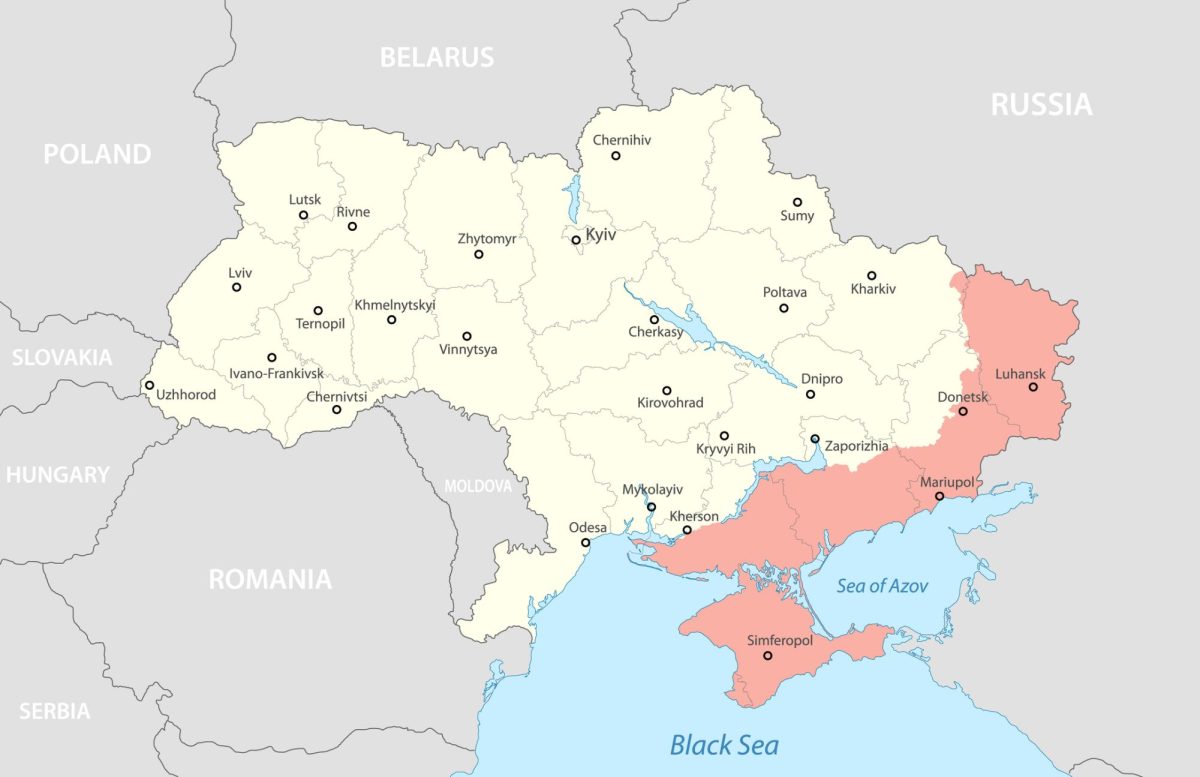In the lively, topmost layer of our lovely lithosphere – in our soils – worms and other organisms play an important ecological role. But sharing a planet with people tends to complicate their productivity.
The March sky filled with a bright red Worm Moon this year, maybe as a reminder that the worm’s earthy world needs attention. Let’s burrow deep and talk about earthworms!
EARLY BIRD GETS THE WHAT?
“Worm” is a pretty vague term for a very large and diverse group of soft-bodied, burrowing invertebrates. Of earthworms alone, there are more than 6,000 species globally and around 42 known species in Illinois!
But not all earthworms are created equal.
Patrick Kelsey, a soil scientist and adjunct instructor at NIU in the Earth, Atmosphere and Environment Department, explained the earthworms you might see on rainy day sidewalks are most likely non-native species – such as nightcrawlers, redworms or jumping worms – which are invasive.
But when squiggling through the right environment – like the Illinoisan prairie worm – these adorably goofy creatures are one of many organisms that play an important role in soil health.
Earthworms bioturbate, which means as they burrow through the ground, they churn up the earth around them, mixing organic and mineral matter into the soil.
Lots of other animals engage in bioturbation, including moles, groundhogs, burrowing snakes and formicide ants, Kelsey said. Plants bioturbate too, pushing roots through the subsurface.
In the soil, life thrives with a symphony of movement.
“It (bioturbation) is a necessary part of soil development and maintenance of a healthy soil ecosystem,” Kelsey said. “It’s only been a couple of decades now that we have thought of soils as ecosystems, but there are millions of organisms in a cubic meter of soil, probably billions if you count the bacteria, that’re there, and so it’s a very robust ecosystem. And the organisms that are native to those conditions determine how the soil develops.”
Unfortunately, many earthworm species – and many invertebrates in general – are suffering population declines related to human activity.
WHY DO SOILS MATTER?
Here in the Prairie State, our soils are especially rich and fertile, with immense agricultural benefits and unique ecological systems.
Yet research consistently finds that soils are continuously threatened by human-caused pollution, infrastructure and progressing climate change.
“The biggest concern worldwide is the destruction of soil productivity, and that occurs for a large number of reasons, some of it is due to over tillage, some of it is due to ecosystem destruction for either grazing or forestry – and particularly in the tropical regions, slash and burn forestry is a huge fragmenter of landscapes, but it also destroys the soil biodiversity,” Kelsey said.
Pesticides and chemicals in some fertilizers used in agricultural management can also have extremely detrimental impacts on earthworms, and with them, the cycles of life soil ecosystems depend on, according to the National Library of Medicine.
Even humans doing their own bioturbation can cause harm; the behavior isn’t as helpful as when earthworms and other soil dwellers do it.
“For better or worse, all of the human activity when we dig – so not necessarily part of ecosystem building – we do an awful lot of bioturbation just in construction and movement of Earth,” Kelsey said. “Humans are still part of the ecosystem and more so than invasive species we probably have the biggest negative impact on soil development.”
GET YOUR HANDS DIRTY
Out of sight, out of mind – it’s not easy for an animal that stays on top of the Earth’s crust to imagine the intensity of life in the soil. But our human world depends a lot on the stability of soil life, from the food we desperately need to grow to the soil’s role in carbon sequestration.
When we threaten soils – when we threaten the worm’s world – we threaten our own species. We need all the soil scientists, gardeners, Earth-lovers and policies protecting soil health that we can get.
So even if you’re not an earthworm, you can still help soils. Be conscious of the soils on your property, be careful what you put on your lawn and be environmentally productive with your civic voice.
And as the ground thaws for summer, save some love in your heart for the tiny life beneath the surface, for creepy crawlies, for that perfect soil smell and for slimy, turbating, beautiful worms.



















